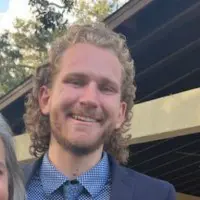
- Published on
- Authors

- Name
- ric de yuga 😄
🗣️ The Great Policing Debate: Finding Common Ground
In a bustling community center, two groups gather on opposite sides of the room. On one side are the proponents of covert policing, arguing for the necessity of undercover operations. On the other, advocates for an overt police state, believing that visibility and strict enforcement are the keys to public safety.
🕵️♂️ The Case for Covert Policing
The covert policing group takes the floor first. "Undercover operations are essential for gathering intelligence and infiltrating criminal organizations," argues their leader, a seasoned detective named Jack. "Without them, we'd be flying blind, unable to prevent crimes before they happen."
👮♂️ The Case for Overt Policing
The overt policing group counters. "But at what cost?" asks their spokesperson, a former judge named Olivia. "Covert operations breed mistrust and paranoia. Citizens never know who they can trust. An overt police presence, on the other hand, sends a clear message: crime will not be tolerated."
🚨 The Downsides of Both Approaches
As the debate heats up, both sides begin to acknowledge the drawbacks of their preferred approaches.
"Undercover cops can be tempted to break the law themselves," admits Jack. "There's always the risk of corruption and abuse of power."
"And an overt police state can quickly become oppressive," concedes Olivia. "When the police are everywhere, always watching, it can feel like living in a dystopian novel."
🤝 Seeking a Compromise
Recognizing the flaws in their own arguments, the two groups begin to search for common ground.
"What if we focused on crime prevention, rather than just enforcement?" suggests Jack. "If we worked with the community to address the root causes of crime – poverty, lack of education, mental health issues – maybe we wouldn't need as many undercover ops or overt displays of force."
Olivia nods thoughtfully. "And what if we invested in training police to be more like community helpers? They could be mediators, conflict resolvers, and advocates for those in need."
😊 The Third Option: Community-Oriented Policing
As the conversation progresses, a new vision for policing emerges – one that combines the best of both worlds while minimizing the drawbacks.
"Picture this," says Jack, his eyes lighting up. "Police officers who are deeply embedded in the communities they serve. They know the residents, the local issues, and the trouble spots. They work proactively to prevent crime and build trust."
"And they have the resources to do more than just enforce the law," adds Olivia. "They can connect people with social services, mental health support, and job opportunities. They can be a positive presence, like firefighters – respected and appreciated."
💸 Reallocating Resources
The group discusses how this new model might work in practice. "We could reallocate some of the policing budget to crime prevention programs," suggests Jack. "More funding for schools, community centers, and job training."
"And for mental health services and substance abuse treatment," adds Olivia. "So many crimes are rooted in untreated mental illness and addiction."
🌇 A Brighter Future
As the meeting draws to a close, the two sides find themselves united behind a shared vision of a brighter future.
"It won't be easy," acknowledges Jack. "Changing the culture of policing will take time and effort."
"But it's worth it," says Olivia firmly. "For safer communities, for better relationships between police and citizens, and for a more just society."
The group leaves the community center with a renewed sense of purpose, ready to work together to bring about the change they wish to see - a future where police are trusted partners in building safe, healthy, and thriving communities. 🤝🌇
